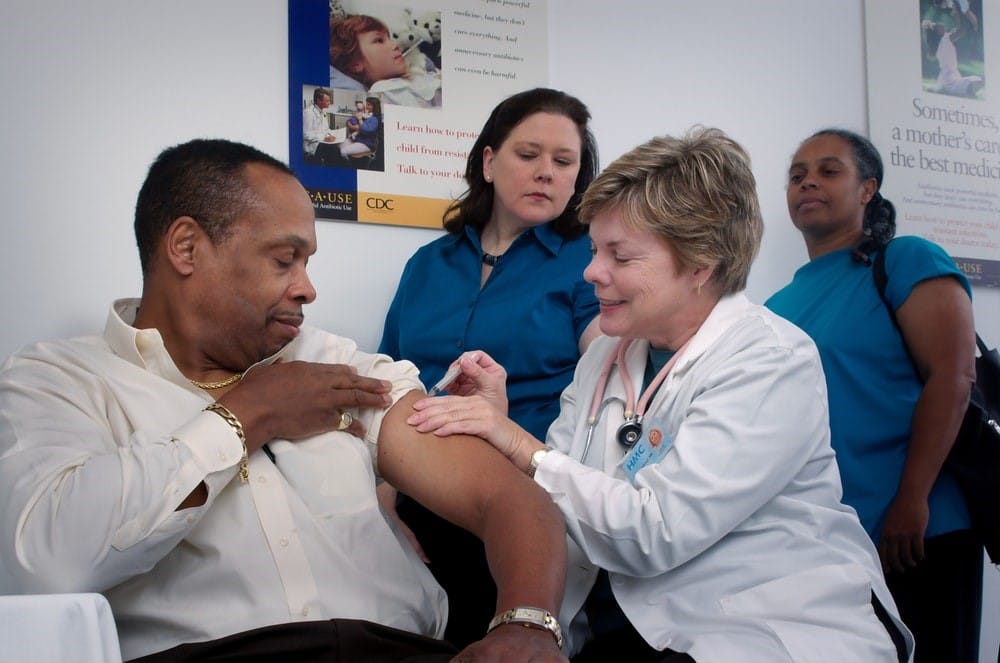How Close are We to a COVID-19 Vaccine or Treatment?

Developing a vaccine for any virus is no easy task. To this date, there is still no vaccine for the virus strain that caused the Severe Acute Respiratory Syndrome (SARS) outbreak in 2013. However, there have been many medical and technological advances over the past decade that are contributing to the current developments of a COVID-19 vaccine. To date, there are at least 20 vaccines that are in various stages (research, development, testing) around the globe – all in a race to become the first successful vaccine to combat the novel coronavirus. Here are some of the latest developments on the vaccine and treatment front.
Developments on Research to Advance our Understanding of COVID-19
Scientists have figured out how the novel coronavirus enters human cells, which will help in developing treatments.
Scientists have been able to understand how COVID-19 virus binds with human respiratory cells and self-replicate. Since then, researchers in China have solidified images all the way down to the level of the atoms at the binding points. This new understanding of how the virus enters human cells will significantly help researchers in finding and formulating vaccines or treatments to fight the virus.
Scientists in Canada have made massive breakthroughs in isolating and growing copies of the novel coronavirus.
A team of Canadian scientists has isolated and grown copies of the novel coronavirus, which may now help scientists study the pathogen to develop better testing, treatments, vaccines, and gain a better understanding of its biology.
Developments on COVID-19 Vaccine
Canadian company ‘Medicago’ has a COVID-19 vaccine candidate that could begin human trials as early as Summer 2020.
Medicago, a Canadian company based in Quebec City, has produced a virus-like particle of COVID-19. This is the first step towards producing a vaccine. It now has to undergo pre-clinical testing to ensure efficacy and safety. If approved by Health Canada and other agencies, human trials could begin in July or August 2020. It was able to create a vaccine candidate quickly because it used a plant-based platform to help grow vaccine proteins (instead of using chicken embryos). This breakthrough technology is also being used to create a seasonal flu vaccine that is under review by Health Canada.
There are 5 different vaccine options being tested in China.
Five different vaccines are being worked on by eight different institutes in China. The Director of the National Health Commission’s Science and Technology Development Centre is hopeful that some of these vaccine candidates will enter clinical research in April 2020.
Scientists in Australia are testing two drugs to cure COVID-19 infection.
Apart from all the vaccines currently being developed around the world, Australian researchers have identified how the body’s immune system fights COVID-19. The research – which was published in Nature Medicine journal – shows that people recover from the novel coronavirus like they would from the flu. It provides an understanding of how the human immune system fights COVID-19.
Israeli scientists are developing a COVID-19 vaccine that could be ready within a few months.
The Israeli Science and Technology Minister, Ofir Akunis, announced that scientists in Israel are almost finished the development of a vaccine that could be ready in a few months.
A joint collaboration between a San Diego-based biotech company, Duke University, and National University of Singapore is developing a coronavirus vaccine.
Arcturus Therapeutics, a biotech company based in San Diego, is working with Duke University and National University of Singapore to develop a COVID-19 vaccine. Dosage size and feasibility of manufacturing are cited as the current main challenges.
Vaccination trials in the U.S. are already underway.
At Kaiser Permanente in Seattle, there is a trial of Moderna’s vaccine that has started under Washington’s Health Research Institute. This trial will confirm the vaccine’s safety for human use.
With all of these vaccine candidates being developed and tested, it would take at least 12 to 18 months before a vaccine could be deemed safe enough to be made available to the general public.
Developments on COVID-19 Treatment
A Johns Hopkins researcher has claimed antibodies from recovered coronavirus patients could help protect people at risk.
A team of researchers at Johns Hopkins University in the U.S. is taking a slightly different approach to COVID-19 treatment. Instead of focusing on a traditional vaccine, they are studying the use of antibodies retrieved from recovered COVID-19 patients, which could help protect people from the virus. This would be used as a treatment to be made available under urgent circumstances.
A Japanese flu drug has proven effective in treating COVID-19.
A Japanese flu drug called “favipiravir”, developed by Fujifilm Toyama Chemical, appears to be effective in treating coronavirus patients. This drug is usually used to treat new strains of influenza in Japan. Clinical trials were conducted on 340 patients in Wuhan and Shenzhen. An official at China’s Science and Technology Ministry reported that the trials resulted in positive outcomes. Patients who were given the favipiravir drug in Shenzhen turned negative for the virus after a median of four days after becoming positive, compared with a median of 11 days for those who were not treated with the drug.
However, a Japanese health ministry source suggested that the drug was not as effective in people with more severe symptoms. Favipiravir would need government approval for full-scale use on COVID-19 patients. Approval could come as early as May, but it could be delayed.